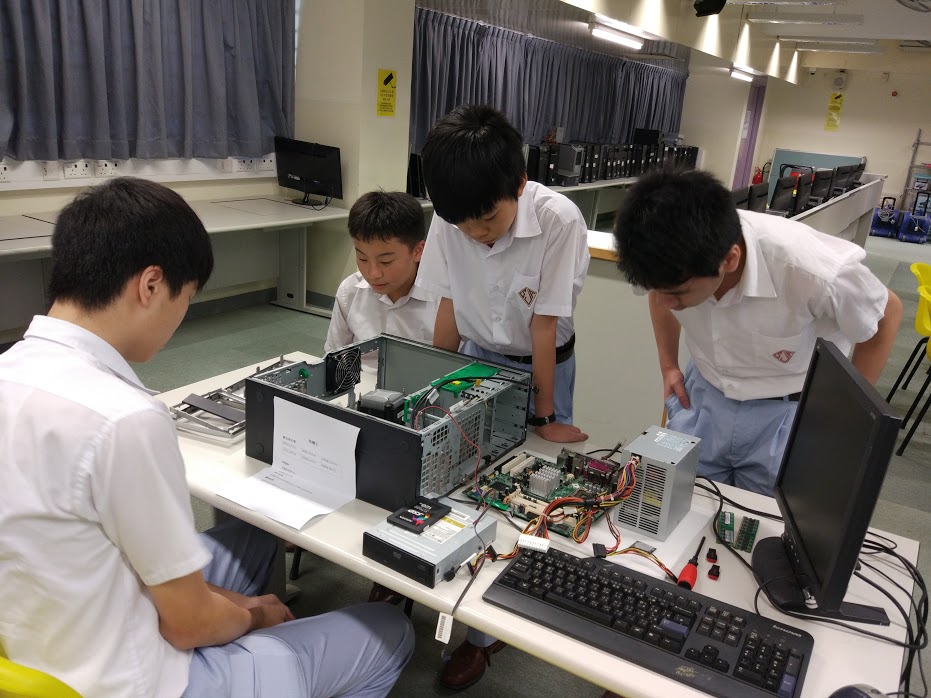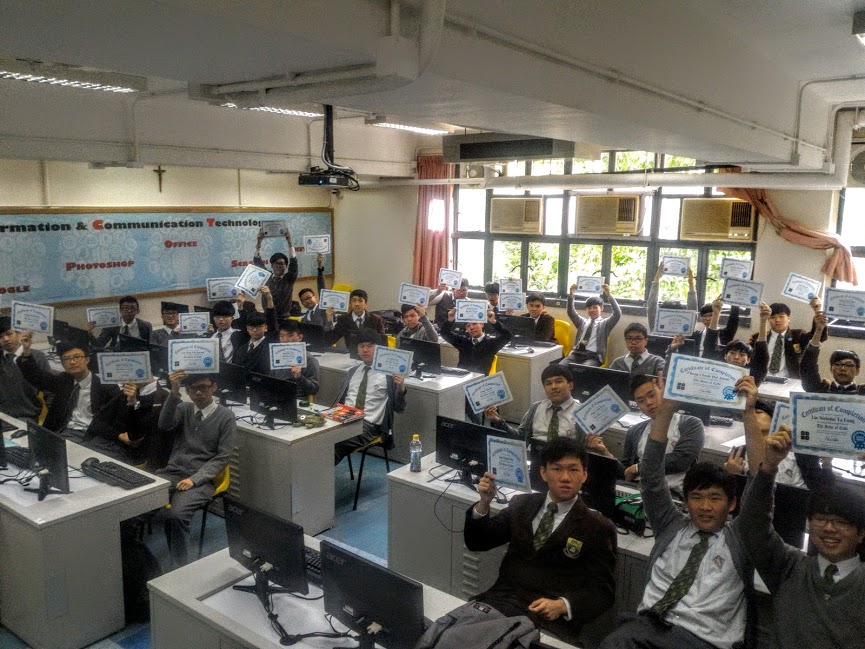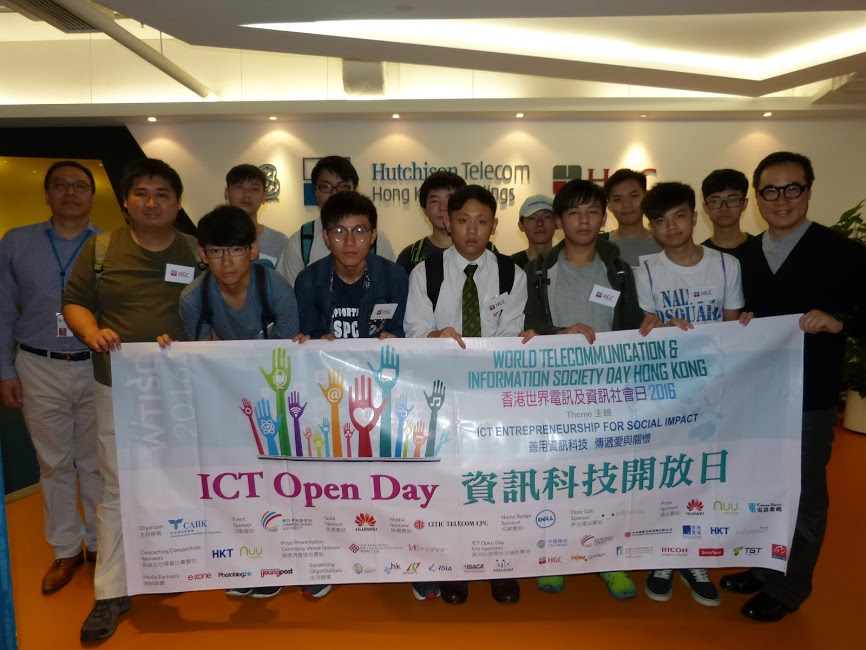Computer Literacy (S1-S3)
Objectives
- Choose the appropriate hardware, software and computer systems to perform specific tasks
- Develop skills to perform a variety of Internet activities
- Apply different approaches in solving problems
- Develop skills to solve problems systematically
- Know how to develop simple programs to solve problems
INFORMATION AND COMMUNICATION TECHNOLOGY (Technology Education KLA)
Hong Kong Diploma of Secondary Education Examination (HKDSE)
ASSESSMENT OBJECTIVES
The objectives of this assessment are to evaluate candidates' ability to:
- demonstrate knowledge and understanding of the range and organisation of computer systems, and the interrelationships among hardware, software and data;
- appreciate the social, ethical and legal issues pertaining to the use of information and communication technologies;
- use a range of application software effectively, ethically and with discrimination to support information-processing and problem-solving;
- demonstrate an understanding of methods for analysing problems, and planning and implementing solutions using information and communication technologies; and
- appreciate how information literacy and the sharing of knowledge using information and communication technologies influence decision-making and shape our society.
MODE OF ASSESSMENT
The public assessment will consist of a public examination component and a school-based assessment component as outlined in the following table:
|
Component
|
Weighting
|
Duration
|
|
Public Examination
|
Paper 1 Compulsory part
Paper 2 Elective part (choose any two)
2A Databases
2B Web Application Development
2C Algorithm and Programming
|
55%
25%
|
2 hours
1 ½hours
|
|
School-based Assessment (SBA)
|
20%
|
|
Recommended modules
The Compulsory Part
A. Information Processing
- Introduction to Information Processing
- Data Organisation and Data Control
- Data Representation
- Data Manipulation and Analysis
B. Computer System Fundamentals
- Basic Machine Organisation
- System Software
C. Internet and its Applications
- Networking and Internet Basics
- Internet Services and Applications
- Elementary Web Authoring
- Threats and Security on the Internet
D. Computational Thinking and Programming
- Problem-Formulation and Analysis
- Algorithm Design
- Program Development
- Program Testing and Debugging
E. Social Implications
- Technological Innovations
- Health and Ethical Issues
- Intellectual Property
The Elective Part (Choose any two only)
A. Databases
- Relational Databases Concepts
- SQL
- Database Design Methodology
B. Web Application Development
- Network Services and Implementation
- Web Programming and Applications
C. Algorithm and Programming
- Programming
- Applications of Programming in Real Life
ICT (S4-S6)
The senior secondary ICT curriculum aims to
- provide students with a body of essential knowledge, concepts and applications of information, communication and computer systems;
- equip students with problem-solving and communication skills, and encourage them to think critically and creatively;
- develop students into competent, effective, discriminating, ethical and confident users of ICT, so as to support their lifelong learning; and
- provide students with opportunities to appreciate the impact of ICT on our knowledge-based society, so as to nurture in them positive values and attitudes towards this area.
The Learning Target of Senior Secondary ICT:
Knowledge and Understanding
- Develop knowledge and understanding of the range and organisation of computer systems, and the interrelationships between hardware, software and data; and
- Realise the social, ethical and legal issues pertaining to the use of ICT.
Skills
- Use a range of applications software effectively, ethically and with discrimination to support information processing and problem-solving; and
- Demonstrate an understanding of methods for analysing problems, and planning and implementing solutions using ICT.
Values and Attitudes
- Appreciate how information literacy and the sharing of knowledge using ICT influence decision-making and shape our society; and
- Develop responsible and positive attitudes towards the use of ICT.
Curriculum Framework of senior secondary ICT
Panel Activities:
 PC Assemble King Competition
PC Assemble King Competition Hour of Code
Hour of Code ICT Open Day/td>
ICT Open Day/td>